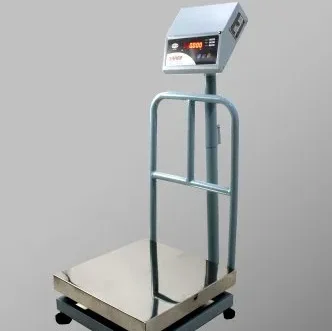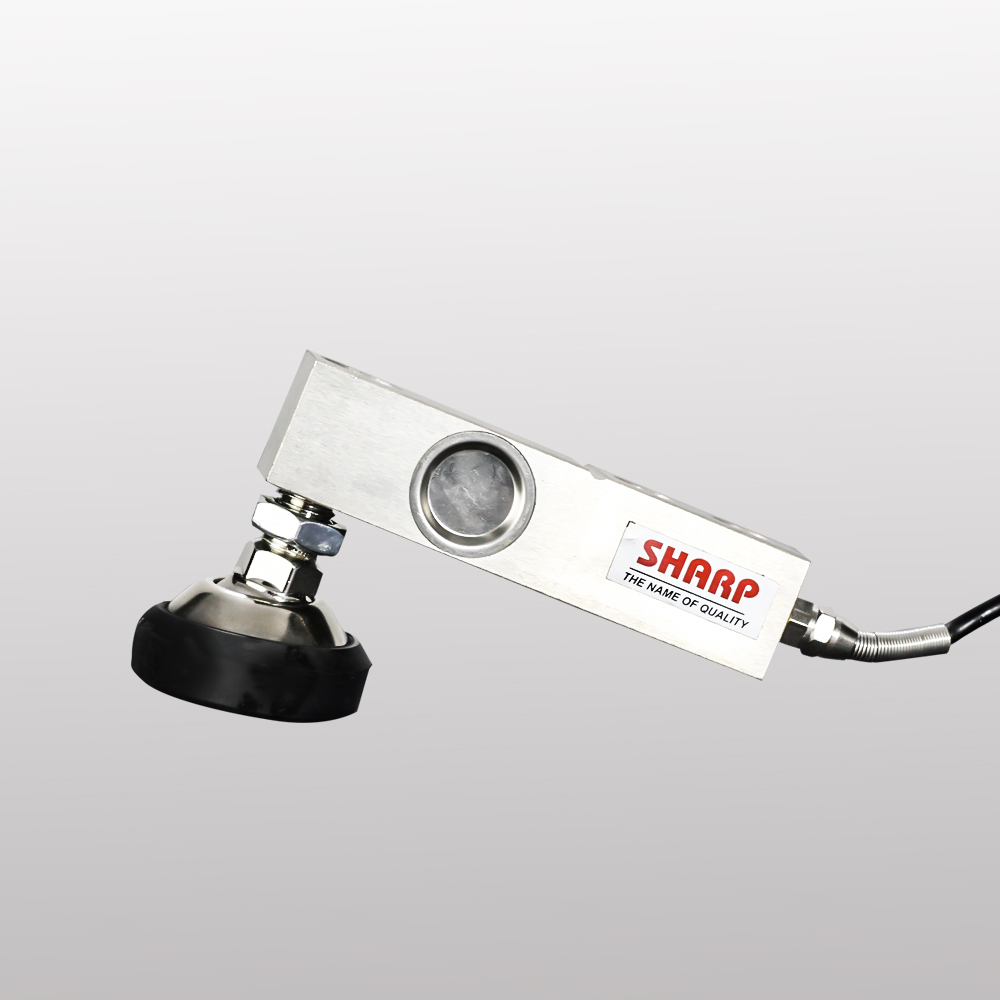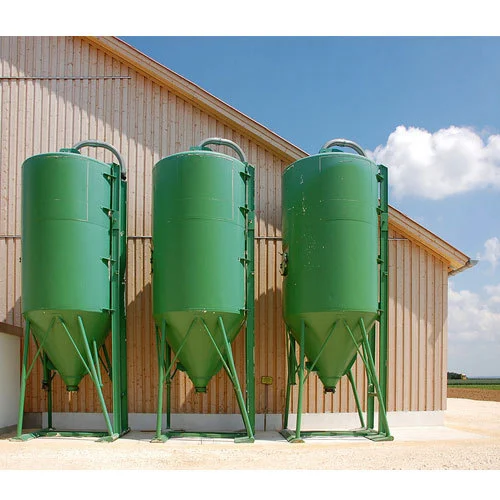A weighing system is a set of equipment and components used to measure the weight of an object or substance. It typically includes a weighing scale or balance, load cells or strain gauges, and a digital indicator or a computer.
The weighing scale or balance is the primary component of the system and provides the means for measuring the weight of the object or substance. The load cells or strain gauges are sensors that convert the weight of the object or substance into an electrical signal that is then processed by the indicator or computer. The digital indicator or computer displays the weight measurement and may also provide additional functionality such as data logging, communication with other systems, and automatic control of processes based on weight measurements.
Weighing systems are used in a wide range of applications, including industrial, commercial, and laboratory settings. They are used to measure the weight of products, materials, and ingredients, and are important for quality control, inventory management, and process optimization. Some examples of industries that use weighing systems include food and beverage production, pharmaceutical manufacturing, construction, and transportation.
The accuracy and precision of a weighing system depend on several factors, including the quality of the components, the calibration and maintenance of the system, and the environmental conditions in which it is used.

A milk weighing scale is a type of weighing system used to measure the weight of milk produced by cows, goats, or other milk-producing animals. The scale is typically placed underneath a milk storage tank or milk container, and the milk is poured into the container for weighing.
Milk weighing scales can be either manual or automated. In a manual system, the operator manually records the weight of the milk on a chart or in a logbook. In an automated system, the weight is recorded electronically and transmitted to a computer or other data collection device.
Accurate measurement of milk weight is important for dairy farmers to ensure they are getting a fair price for their milk and to monitor the milk production of their animals. The weighing scale can also be used to monitor the quality of the milk and to detect any issues that may affect milk production, such as illness or stress in the animals.
Milk weighing scales are typically designed to be easy to clean and sanitize, as hygiene is critical in the dairy industry. They may also have additional features such as automatic taring, which allows the weight of the milk container to be subtracted from the total weight, and data storage and retrieval for tracking milk production over time.
Product Details:
| Brand | Sharp |
| Material | Stainless Steel |
| Weighing Capacity (Kg) | 200Kg |
| Display Type | LCD Display |
| Power Supply | 230V 10% 50Hz |
We manufacture this product , price starting from 6000 to 12000
Features:
- High precision Japanese technology loadcell
- Quick response with auto Zero Tracking.
- Easy to read bright LED Display
- Light weight & Compact Design.
- Overload Protection 150 % of rated capacity.
- Protective PVC cover for dust & humidity.
- Rugged construction with S.S /M. S.
- Removable Platform.
- Inbuilt battery with charging facility
- Optional Features
- RS 232 Interface.
- Printer Output.
- K.g. / Ltr. Facility for Milk Weighing Scale.
- PCO Type Display.

A beam load cell is a type of sensor used to measure the weight or force applied to a structure. It consists of a metal beam with strain gauges or load cells mounted on it. When a weight or force is applied to the beam, it causes a deformation in the metal, which is detected by the strain gauges or load cells.
Beam load cells are commonly used in industrial applications such as weighing systems, crane scales, and force measurement systems. They are often used in harsh environments such as factories and construction sites, as they are robust and can withstand heavy loads and vibrations.
Beam load cells can be made from a variety of materials such as stainless steel or aluminum, and come in a range of sizes and capacities. They can be designed to be mounted in various ways, such as in-line or at an angle, depending on the specific application.
The accuracy and precision of a beam load cell depend on several factors, including the quality of the components, the calibration and maintenance of the system, and the environmental conditions in which it is used. Careful consideration must be given to the selection and installation of beam load cells to ensure reliable and accurate measurements.
Product Details:
| Type | Shear Beam Type Loadcell |
| Brand | SHARP |
| Usage/Application | Industrial |
| Nominal Sensitivity | 2mv/v |
| Load Capacity | 100 to 10000 kg |
| Shape | Rectangular |
| Rated Output | 2mv/v |
| Capacity Range In Kgf | 100 to 10000 kg |
| Element Material | Alloy Steel |
Beam Load Cell
Wiring Schematic Diagram of Beam Load Cell:
- Tool steel Construction for Harsh application
- Single Point Capability for Platform Scale
- Minimum error for Off-Centre loading
- Low profile
- Also available in Stainless Steel
- Suitable for hygienic applications like Food, Dairy & Pharmaceutical Industries
Applications of Beam Load Cell:
- Medium Size Platform Scales
- Bag Weighers
- Hopper Weighers
Dimensions:
| Related Load (kg.) 100, 200, 300, 500, 750, 1000, 1500 | |
| PrecisionC2 / C3 | Insulation Resistance(MΩ)≥2000(100VDC) |
| Composition Error0.03 / 0.02 | Excitation Voltage (V)10~15 (DC) |
| Rated Output (mv/v)2.0 ± 10% | Compensated temp. Range (°C)-10~ 40 |
| Non-Linearity (%FS)0.025 | Use Temp. Range (°C)-20~ 60 |
| Hysteresis (%FS)0.02 | Temp. Effect on Zero (%FS/10°C)0.0020 |
| Repeatability (%FS)0.02 / 0.01 | Temp. Effect on Span %FS/10°C)0.0015 |
| Creep (%FS/30min)0.03 | Safe Overload (%FS)150 |
| Zero Balance (%FS)± 1.0 | Ultimate Overload (%FS)250 |
| Input Resistance (Ω)400 ± 10 | Defend GradeIP65 |
| Output Resistance (Ω)350 ± 2 | Cable6mm, 3mtr |

Conveyor belt scales are a type of weighing system used to measure the weight of material being transported on a conveyor belt. They consist of a weighing platform or load cells mounted beneath the conveyor belt and a digital indicator or computer that displays the weight measurement.
Conveyor belt scales are used in industries such as mining, quarrying, and food processing, where accurate measurement of material flow is critical for inventory management, production efficiency, and cost control. They are typically used to measure the weight of bulk materials such as coal, ores, grains, and packaged goods.
Conveyor belt scales can be designed to work with a variety of conveyor belt sizes and types, including flat belts, trough belts, and cleated belts. They can be mounted on the conveyor frame or integrated into the conveyor system.
Some conveyor belt scales are equipped with advanced features such as data logging, communication with other systems, and automatic control of processes based on weight measurements. For example, a conveyor belt scale may be integrated with a batching system to control the flow of material into a mixing tank based on weight measurements.
The accuracy and precision of a conveyor belt scale depend on several factors, including the quality of the components, the calibration and maintenance of the system, and the environmental conditions in which it is used. Careful consideration must be given to the selection and installation of conveyor belt scales to ensure reliable and accurate measurements.
Product Details:
| Display Type | na |
| Frequency | na |
| Voltage | na |
| Accuracy | +/- 0.5% |
| Material | Stainless Steel |
| Usage | Industrial |
We are leading Manufacturer for the Weighing System which also includes Belt Weighing System Check Weigher since 2000Belt Weighing System
- Single or multi-idler weighing system for installation on flat or inclined belt conveyor up to 2m wide.
- Comprises indicator, up to 3 idler frames, speed transmitter, junction boxes and cabling
Callback
Additional Information:
- Pay Mode Terms: T/T (Bank Transfer),D/P
- Production Capacity: AS PER REQUIRMENT
- Delivery Time: 3 TO 4 WEEKS

A hopper weighing system is a type of weighing system used to measure the weight of material in a hopper or silo. It typically consists of a load cell or load cells mounted beneath the hopper or silo and a digital indicator or computer that displays the weight measurement.
Hopper weighing systems are used in industries such as agriculture, food processing, and manufacturing, where accurate measurement of material inventory is critical for production efficiency, quality control, and cost management. They are typically used to measure the weight of bulk materials such as grains, powders, and pellets.
Hopper weighing systems can be designed to work with a variety of hopper sizes and shapes, including conical, cylindrical, and rectangular hoppers. They can be mounted directly on the hopper or silo or integrated into the support structure.
Some hopper weighing systems are equipped with advanced features such as data logging, communication with other systems, and automatic control of processes based on weight measurements. For example, a hopper weighing system may be integrated with a batching system to control the flow of material into a mixing tank based on weight measurements.
The accuracy and precision of a hopper weighing system depend on several factors, including the quality of the components, the calibration and maintenance of the system, and the environmental conditions in which it is used. Careful consideration must be given to the selection and installation of hopper weighing systems to ensure reliable and accurate measurements.
Product Details:
| Minimum Order Quantity | 5 Piece |
| Material | MS |
| Voltage | 220 V |
| Frequency | 50 Hz |
| Usage/Application | Industrial |
| Display | Red / Green 7 segment Led Display |
| Capacity | 2 Ton |
| Power Source | AC380V/50HZ |
We are listed as the renowned manufacturer and supplier of superior quality Hopper Weighing System. The offered hopper weighing systems are designed by our competent persons by consuming optimum grade components including updated technology. Apart from this, the hopper weighing systems given by us is examined on diverse parameters & provided with customization facility which matches the requirements of customers. Our esteemed patrons can take these hopper weighing systems from us at affordable rates.
Features:
- Splendid quality
- Longer service life
- Low maintenance

A tank weighing system is a type of weighing system used to measure the weight of liquid or gas in a tank. It typically consists of load cells or weighing modules mounted beneath the tank and a digital indicator or computer that displays the weight measurement.
Tank weighing systems are used in industries such as chemical processing, food and beverage production, and petroleum refining, where accurate measurement of liquid or gas inventory is critical for production efficiency, quality control, and safety. They are typically used to measure the weight of liquids such as chemicals, oils, and beverages, as well as gases such as propane and natural gas.
Tank weighing systems can be designed to work with a variety of tank sizes and shapes, including horizontal and vertical tanks. They can be mounted directly on the tank or integrated into the support structure.
Some tank weighing systems are equipped with advanced features such as data logging, communication with other systems, and automatic control of processes based on weight measurements. For example, a tank weighing system may be integrated with a level control system to automatically refill the tank when the weight drops below a certain threshold.
The accuracy and precision of a tank weighing system depend on several factors, including the quality of the components, the calibration and maintenance of the system, and the environmental conditions in which it is used. Careful consideration must be given to the selection and installation of tank weighing systems to ensure reliable and accurate measurements.
Product Details:
| Material | Na |
| Automation Grade | Automatic |
| Accuracy | na |
| Capacity | 1ton to 1000tons |
| Voltage | 380 V |
| Operating Temperature | 0 Degree C to 50 Degree C |
Our clients can avail from us an extensive range of Tank Weighing Systems, which is widely acclaimed for easy installation, high accuracy and calibration. These weighing systems are used to weigh the exact amounts of solid and liquid material, which is filled or discharged from industrial hopper, silos, bunkers, tanks and mixers. Our range is available in different types, which includes crane weighing systems and milk weighing systems.
Some of the features of our range are as follows:
- Highly versatile system based on micro processor
- Available in range starting from 5 kg to 100 tones
- The load cells designed to withstand extreme environmental conditions
- Flame-proof CMRS approved or weather-proof systems
- These ensure accurate control and enhanced production
- Widely used for level measurement and control, or loose/gain in weight measurement and control along with flow rate calculation

